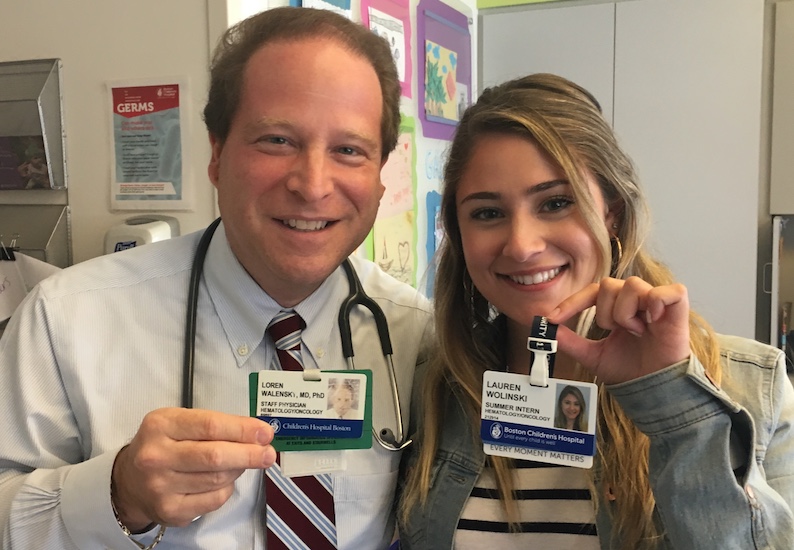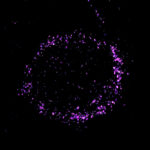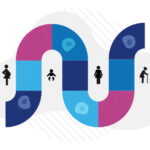A series of coincidences unite two people to fight childhood cancer

When Lauren Wolinski accepted a job as a summer intern in the oncology unit at Boston Children’s Hospital, she could not have anticipated how extraordinary the experience would turn out to be.
“I expected it would be very intense and sad to work with children who have cancer, but I quickly found out Boston Children’s is a place filled with hope and happiness,” says Lauren, a rising senior at Westfield State University in Westfield, Mass., who hopes to become a nurse practitioner. “This really surprised me and has made the job so rewarding.” It has also helped her to realize that she would like to pursue a career in a hospital setting.
Different spellings but same name
Another surprise was that on the job she met her namesake — literally. Loren D. Walensky, MD, PhD, is an attending physician in pediatric oncology at Dana-Farber/Boston Children’s Cancer and Blood Disorders Center, as well as a principal investigator with the Linde Program in Cancer Chemical Biology. Although the two of them spell their names differently, the pronunciation is the same.
Lauren and Dr. Walensky also share a common goal that connects them in a very meaningful way: to help children beat cancer, and to make their time more tolerable while they are in the hospital.
“For the summer, I’m working in the resource room for the cancer floor, and I also help with child life,” Lauren explains. In this capacity, she has a chance to play with the children, read to them, prepare goody bags filled with treats, help with a bracelet-making class, and distribute menus listing special meals.
Treating the minds, and bodies, of children fighting pediatric cancer
All of these activities help keep the children occupied and having fun when they are feeling well enough to participate, which for many of them will hopefully be much of the time, according to Dr. Walensky.
He points out that his role in the oncology unit is to draw on his medical training, along with more than two decades of clinical experience and research, to help the children beat their cancers. When treatments fail, he goes back to the lab to better understand why and then tries to develop new options that could be more effective in the future.
Dr. Walensky stresses that it’s really the culmination of both his contributions and Lauren’s — along with the hard work and dedication of everyone else on the floor, and in the entire hospital setting — that truly makes a difference for the children in the unit and for their families.
“At Boston Children’s, fighting cancer is truly a team effort,” he stresses. “No matter what your role is, it matters.”
Creating opportunities for students in the pediatric cancer field
In a round-about way, Dr. Walensky was also instrumental in helping Lauren to get this opportunity at Boston Children’s through the Alex’s Team Foundation, although until recently the two hadn’t even realized the connection.
“I was working as an oncology fellow in 2000 when the Miliotis family came in with twin daughters and a son. One of the twins, Alex, was very sick with leukemia, [a type of cancer of the blood that develops in the bone marrow] and despite treatment, less than a year later she passed away at the age of 16,” Dr. Walensky recalls. “I stayed very close with the family and helped them define one of the missions of the Alex’s Team Foundation, which is to inspire young people to consider careers in pediatric oncology,” he adds.
Today, the foundation supports students like Lauren who are interested in making an impact on childhood cancer through a variety of direct care and research efforts. The hope is that the opportunity will inspire a new generation of health care providers to focus on finding cures for pediatric cancer, while also providing compassionate and cutting-edge care.
Reflecting on the experience
“I am really grateful to be here, and grateful to the Alex’s Team Foundation and to Dr. Walensky for making this opportunity possible,” Lauren says.
“They don’t tell you in college how many jobs there are in a hospital — from child life specialists, to educators working in the resource room, to technology experts,” she points out. By seeing first-hand how many roles there are, and how much of an impact every single person has on the patients, she has gained a deeper appreciation of what she wants to do with her life and how she can best contribute to the medical field.
She also stresses that through this series of coincidences, she has met a new namesake whose dedication to the field serves as a real inspiration for her.
Honoring Alex’s memory
For Dr. Walensky, the experience of seeing how moved Lauren has been by this internship has served as a beautiful reminder of what Alex’s legacy and the Alex’s Team Foundation are all about. The two also share the hope that in the future, they will have a chance to work together again.
Learn more about the Dana-Farber/Boston Children’s Cancer and Blood Disorders Center.
Related Posts :
-

A new druggable cancer target: RNA-binding proteins on the cell surface
In 2021, research led by Ryan Flynn, MD, PhD, and his mentor, Nobel laureate Carolyn Bertozzi, PhD, opened a new chapter ...
-

Forecasting the future for childhood cancer survivors
Children are much more likely to survive cancer today than 50 years ago. Unfortunately, as adults, many of them develop cardiovascular ...
-

Pediatric high-grade gliomas: Research reveals effective targeting with avapritinib
Pediatric high-grade gliomas, particularly H3K27M diffuse midline gliomas (DMG), are aggressive malignant brain tumors with a poor prognosis. ...
-

Blood across our lifetimes: An age-specific ‘atlas’ tells a dynamic story
The stem cells that form our blood, also known as hematopoietic stem cells (HSCs), are with us throughout our lives. ...





